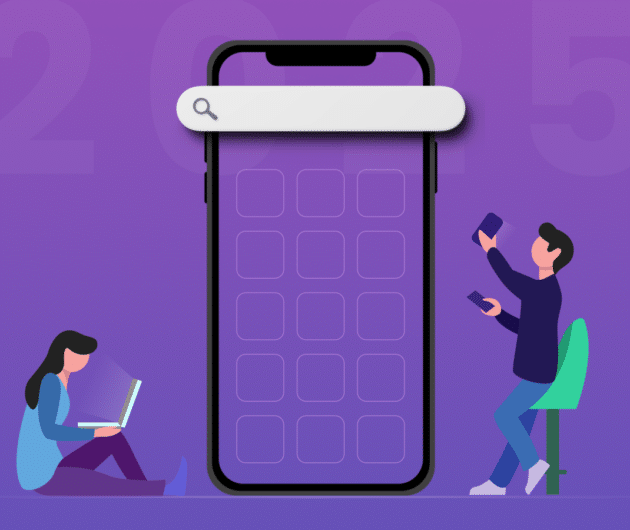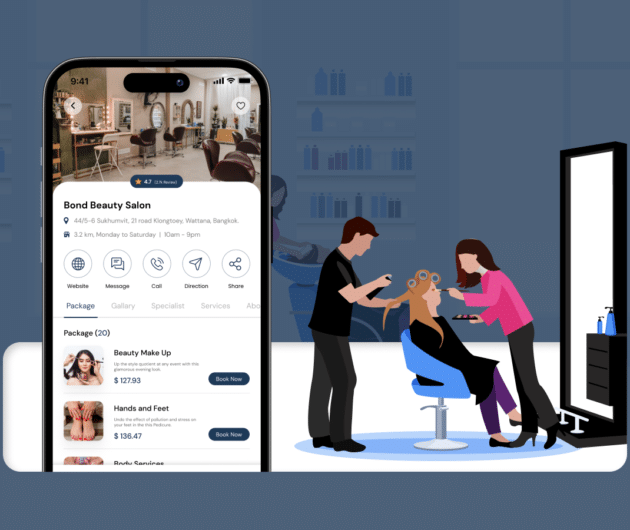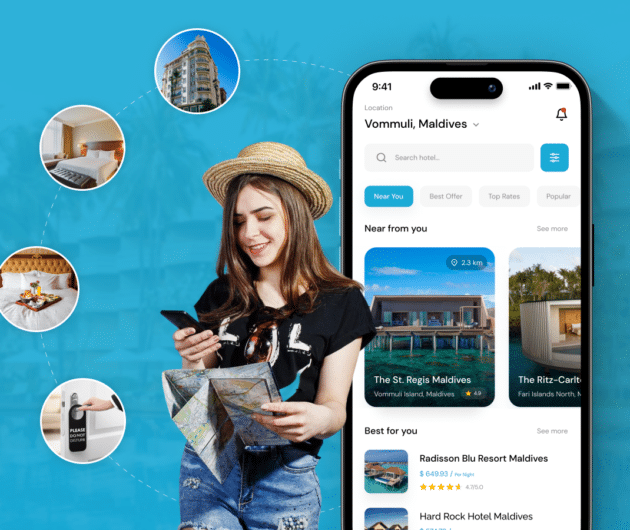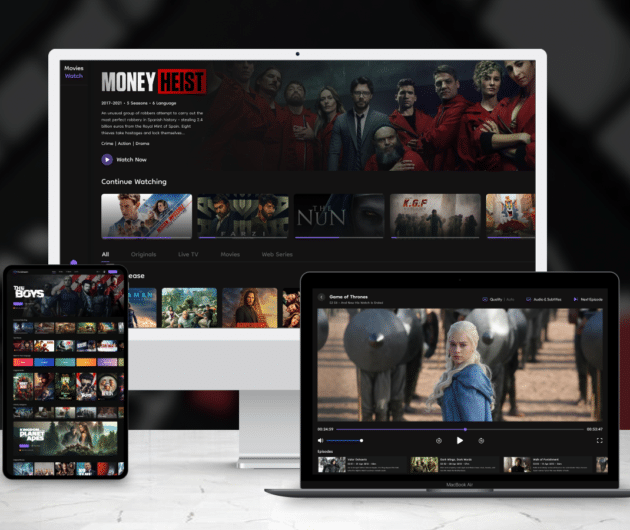Web App vs Mobile App Development: Where You Should Invest?
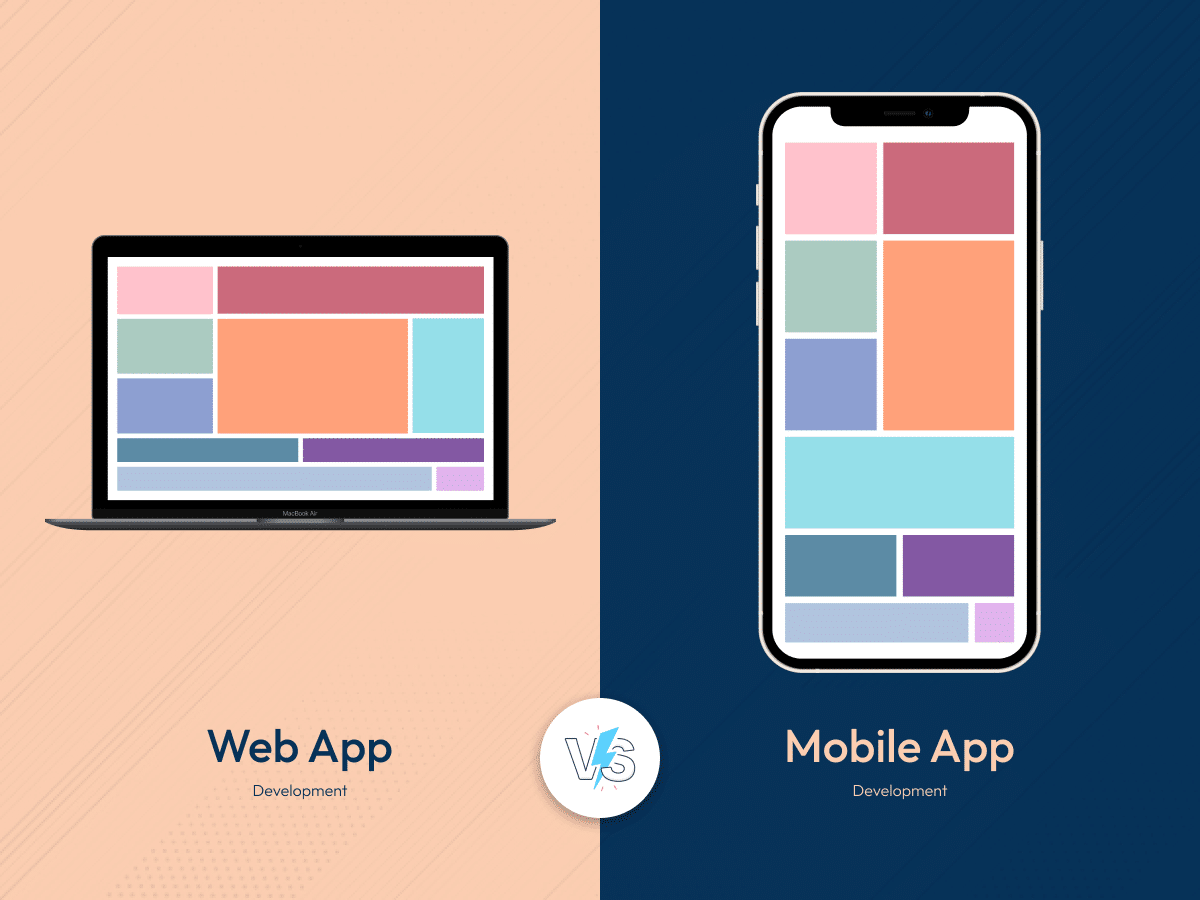
-
Jignesh Nakrani
- March 26, 2024
- 5 min read
In today’s digital age, startups, businesses, and entrepreneurs are constantly looking for ways to engage customers and enhance their online presence. One key decision they face is whether to invest in web or mobile app development. With the proliferation of smartphones and the increasing popularity of browsing on the go, the choice between mobile app and web app development has become critical.
But with so many options, choosing to build an app for your business can be tricky. Choosing the right development path for your app idea can make or break its success.
Did you know, customers are expected to spend $125 billion on mobile apps by 2027?
Should you invest in a web app, accessible from any browser, or a mobile app, designed for on-the-go convenience? This blog dives deep into the strengths and considerations of both web and mobile app development, helping you decide where to focus your resources and reach your target audience most effectively.
Growth of Mobile and Web Technologies
According to Statista, “85% of internet traffic originates from mobile devices, showcasing the dominance of handheld devices in online interactions.” Surprisingly, 53% of this traffic is directed toward websites rather than apps, emphasizing the enduring significance of the web.
While web app development offers universal access and cost-effective solution, it grapples with limitations in engagement compared to native apps. Nonetheless, the synergy between mobile and web technologies continues to shape our digital landscape, fostering connectivity and innovation on unprecedented scales.
Studies show users spend 3-4 times longer interacting with mobile apps than mobile websites.
The app market is projected to reach $756 billion by 2027.
Understanding Web Apps and Mobile Apps
Web Apps: Web applications, are software applications that can be accessed through a web browser over the internet. These apps are typically written in languages such as HTML, CSS, and JavaScript and run on a remote server. Users access web apps by entering a URL into their browser, and they do not need to download or install the application onto their device.
Progressive Web Apps: A PWA is an application constructed using web platform technologies, offering a user experience akin to that of a native platform application.
Mobile Apps: Mobile applications, or mobile apps, are software applications specifically designed to run on mobile devices such as smartphones and tablets. Unlike web apps, mobile apps need to be downloaded and installed from an app store (such as the Apple App Store or Google Play Store) onto the user’s device.
Here is a breakdown of the major differences between web apps and mobile apps.
| Aspect | Web Apps | Mobile Apps |
| Definition | Applications accessed via web browsers. | Applications designed specifically for mobile devices. |
| Core Functionalities | Accessed via internet connection. Cross-platform compatibility. | Utilize device features like GPS, camera, etc. Also, accessible offline with storage options. |
| Accessibility | Accessed via web browsers on any device. | Optimized for specific mobile OS (iOS/Android). |
| Performance | Depends on internet speed and browser capability. | Generally faster due to optimized coding for devices. |
| Offline Functionality | Limited offline functionality, relies on cached data. | Can have robust offline capabilities with local storage. |
| Development Cost | Generally lower as compared to mobile apps. | Higher due to separate development for each platform. |
| Maintenance | Easier maintenance with updates applied universally. | Requires separate updates for iOS and Android platforms. |
You May Also Like: 20 Best Mobile App Ideas Poised for Success in 2024
Significance of Mobile and Web Apps
In today’s digital landscape, deciding between a mobile app or web app can be a strategic move for your business. Both offer unique advantages. Let’s explore the pros of each:
• Advantages of Mobile Apps
- Offline Functionality: Many mobile apps often run without an internet connection, allowing users to access features on the go.
- Native Features: Mobile apps can leverage a device’s built-in features like camera, GPS, and gyroscope for richer experiences.
- Push Notifications: Mobile apps can send timely alerts and updates directly to users’ devices, boosting engagement.
- Speed and Performance: Optimized for specific devices, mobile apps can offer faster load times and smoother performance.
• Advantages of Web Apps
- Wider Reach: Accessible from any device with a web browser, web apps offer broader reach across platforms without downloads.
- Cost-Effective Development: Developing a single web app is generally more cost-effective compared to multiple mobile apps.
- Automatic Updates: Updates happen automatically on the server side, ensuring users always have the latest version.
- No Storage Needed: Users don’t need to dedicate storage space on their devices.
Platform-Specific Considerations to Keep in Mind
These are vital when developing applications for iOS and Android. Each platform has its unique characteristics, requirements, and user expectations. Here are some considerations for each platform:
• iOS
- Design Guidelines: iOS apps should adhere to Apple’s Human Interface Guidelines (HIG), ensuring a consistent and intuitive user experience. This includes design elements like navigation patterns, button styles, and overall layout.
- Programming Language: iOS apps are primarily developed using Swift or Objective-C programming languages. Understanding these languages and Apple’s development frameworks like UIKit and SwiftUI is essential.
- App Store Review Process: Apple has stringent guidelines for app submission and review. Developers need to ensure compliance with these guidelines to avoid rejection or removal from the App Store.
- Device Fragmentation: While iOS has fewer device variations compared to Android, developers still need to consider different screen sizes and resolutions for iPhones and iPads.
• Android
- Material Design: Android app development should follow Google’s Material Design guidelines for consistent visual elements and interactions across different devices. Material Design emphasizes principles like hierarchy, motion, and responsiveness.
- Programming Language: Android apps are typically written in Java or Kotlin. Kotlin has gained popularity due to its conciseness and compatibility with Java.
- Fragmentation: Android has a vast array of devices with different screen sizes, resolutions, and hardware configurations. Developers must ensure compatibility and performance across various devices.
- Distribution Options: Apart from the Google Play Store, Android apps can be distributed through alternative stores or sideloaded. Developers should consider these distribution options based on their target audience and market reach.

Popular Web and Mobile Apps in Different Industries
- Amazon: A leader in online retail, Amazon offers a vast selection of products and a user-friendly shopping experience across the web and mobile.
- WhatsApp: A free messaging app that allows users to send text messages, voice messages, and photos to individual or group chats.
- Instagram: A photo and video-sharing platform that has become a popular way to connect with friends, family, and influencers.
- Zoom: A video conferencing app that enables users to connect with others virtually for meetings, webinars, and social interactions.
You May Also Like: Develop A Successful Multi-Vendor Marketplace App Like Amazon
Choosing between Web App or Mobile App Development
Deciding between a mobile app or a web app can be a strategic move for your business. Here’s a breakdown of 5 key factors to consider when making this crucial choice:
• Target Audience
Who are you trying to reach? If your users are constantly on the go and need features like GPS or offline access, a mobile app might be ideal. For a wider audience comfortable with web browsers, a web app could be sufficient.
• Functionality
Consider the core features of your app. Does it require constant internet access or leverage device functionalities like a camera? Mobile apps excel here. If it’s a more static experience focused on information delivery, a web app might be more cost-effective.
• Budget
Developing and maintaining separate mobile apps for different platforms can be expensive. A web app, on the other hand, requires a single codebase, making it a more budget-friendly option.
• Engagement
Mobile apps allow for push notifications and a more personalized experience, potentially leading to higher user engagement. Web apps can still be engaging, but might require more effort on the user’s part to return.
• Development Time
Generally, developing a web app is faster than building separate mobile apps for various platforms. This can be crucial if you need to get your product to market quickly.
Summing up
So, you have explored the exciting world of web apps and mobile apps, and the possibilities seem endless! But you don’t have to push yourself to choose just one. Many businesses thrive with a combination of a robust web app and a user-friendly mobile app, offering the best of both worlds to their audience.
If you are still unsure about choosing the best from the mobile and web apps then you can connect with us. At XongoLab, we specialize in web and mobile app development services and cutting-edge web app creation. Our expert team can craft a seamless user experience that transcends platforms, ensuring your brand is accessible and engaging no matter how your customers choose to interact. Contact us today for a free consultation. Together, let’s build the perfect solution for your unique needs.
You may also like
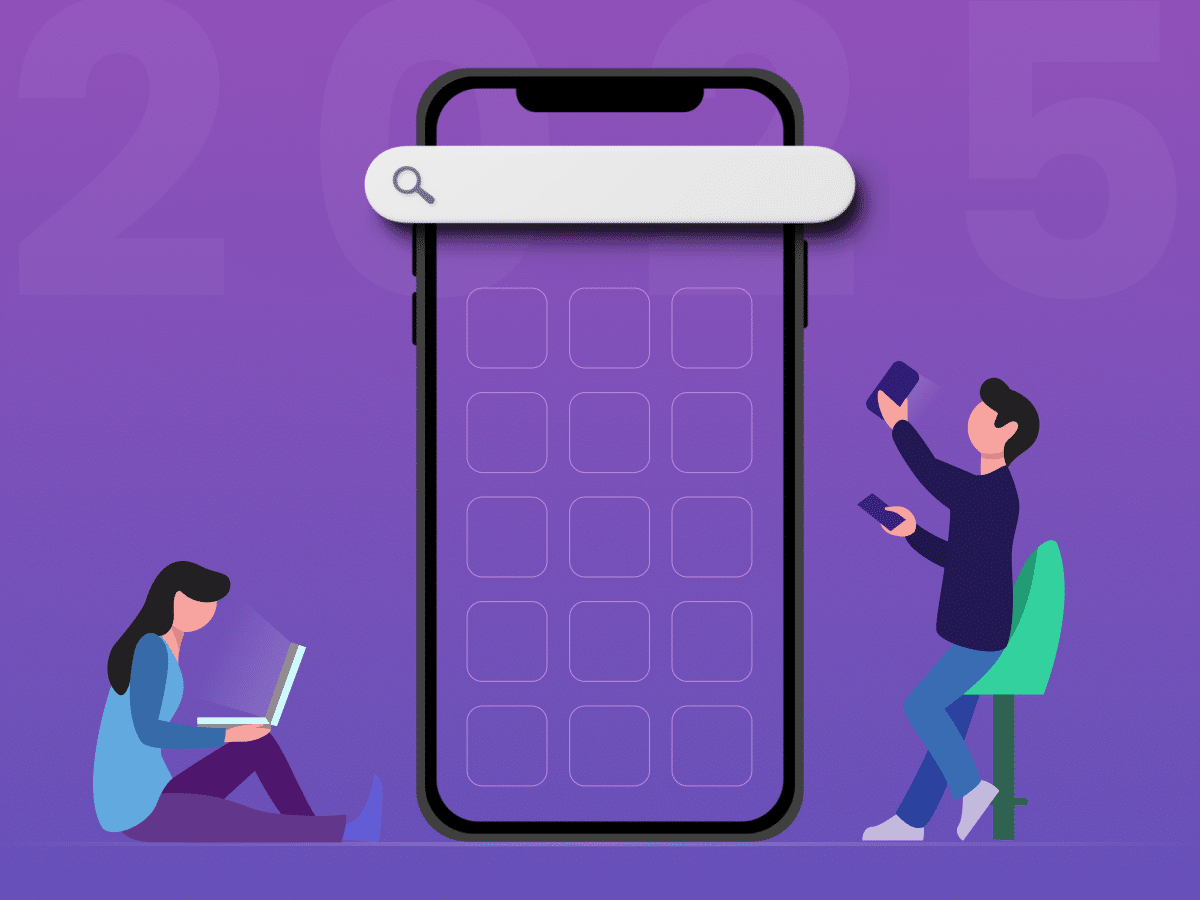
How to Choose the Right Mobile App Development Company
-
Ankit Patel
Imagine this: you’ve got a brilliant app idea that could revolutionize your business, take it to new heights, and transform your entire customer experience. But without the right team to… Read More
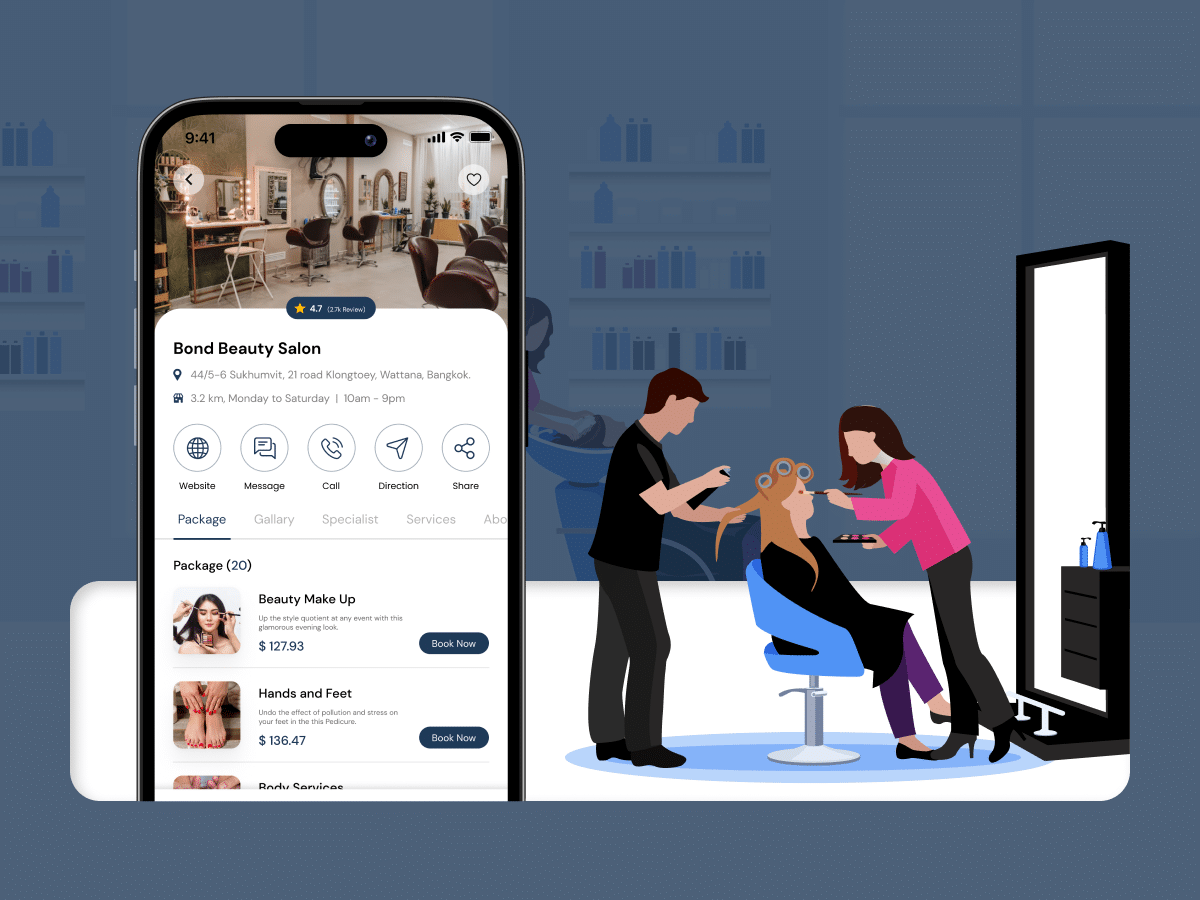
How Much Does it Cost to Build a Salon Booking App like Fresha?
-
Ankit Patel
We all have witnessed the buzz in the world of beauty & wellness, and it’s booming every day thanks to the fast-paced and stressful lifestyle. In an era where time… Read More
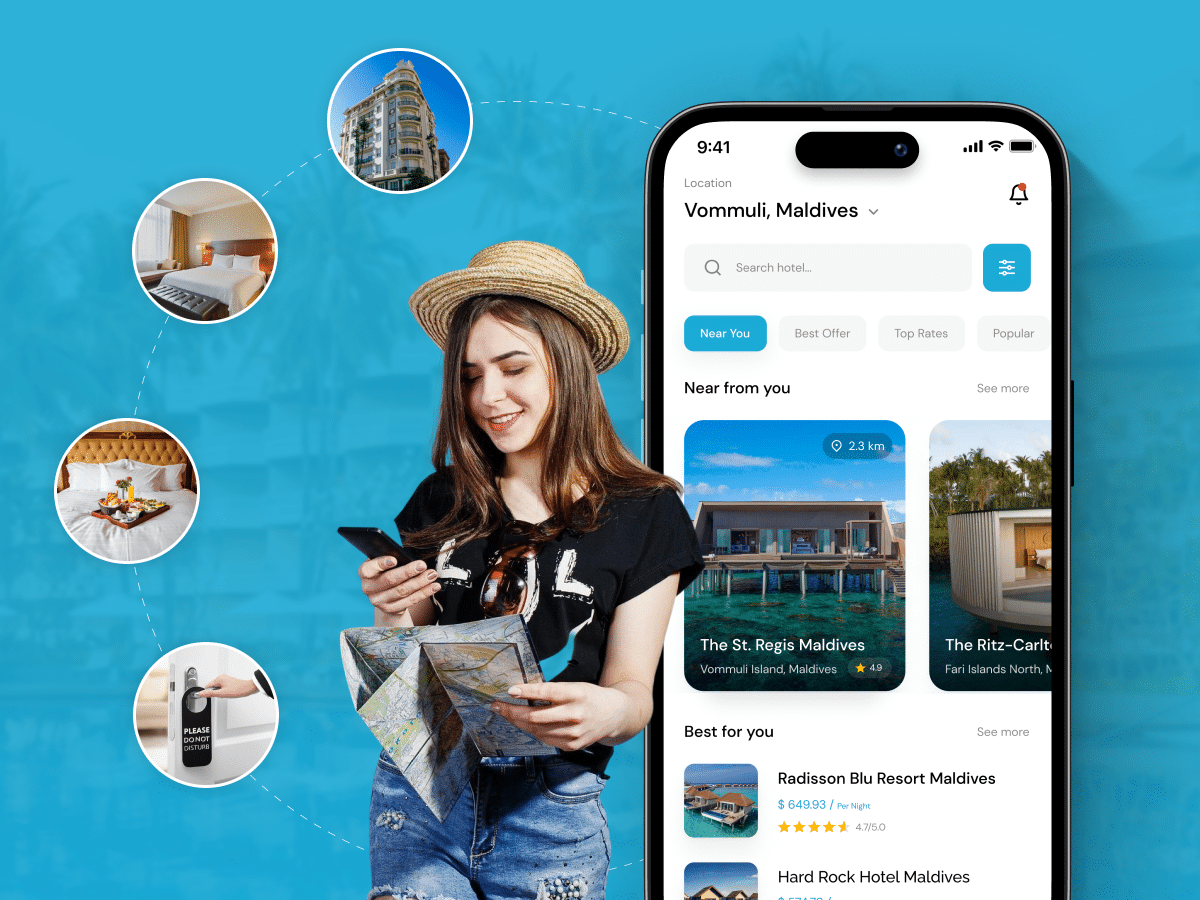
A Complete Guide to Hotel Booking App Development With Cost
-
Ankit Patel
Whether it’s a corporate business trip or a relaxing vacation with friends, finding the right hotel at the right time and a seamless hotel booking experience is not a luxury… Read More

